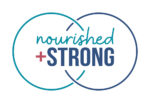If you are just tuning into news about CrossFit, you will see a corporation in crisis mode: Greg Glassman, the founder and CEO, resigned after racist statements he made came to light. Executives are now scrambling to save face while others wonder if the damage has already been done.
But, here’s the thing: Glassman’s damage to CrossFit was done long ago.
Long before revealing overtly racist thoughts, Glassman was already practiced in discrimination. Speaking on their website about “the mess” that is central to CrossFit’s own business model, the organization complains of “runaway medical and disease rates — which many profit from, but none combat effectively.” In other words, Glassman’s company was railing on Registered Dietitians, healthcare providers and the like while acting like CrossFit is some exalted entity in another category. (The Washington Post puts Glassman’s net worth at $100 million, FYI.)
So, as people around the country and world are waking up to the lack of diversity and cultural sensitivity within CrossFit HQ, let’s also address some flaws in CrossFit’s Health initiatives…
CrossFit’s stance on nutrition needs correction
It seems CrossFit and I agree on three things:
- Nutrition is important—but we can empower people to make nourishing decisions (for mind and body), without shaming them into new actions (something that isn’t proven to be effective).
- How we are approaching health disparities is not enough—but it can’t be addressed without also responding to all social determinants of health, including (but not limited to) socioeconomic factors, education, environmental safety, and institutional racism.
- We all want more for our clients—but I believe that should include meeting people where they are and providing tools to improve their mindset within their means and without adding shame.
If you head over to CrossFit’s Health & Nutrition page, I’m curious what it might bring up for you to read it now with your new (or affirmed) knowledge of their leadership flaws. CrossFit places Nutrition at the “base of the pyramid” with Glassman previously quoted as saying, “Go ahead, exercise as hard as you can. If you stuff your face like an unsupervised 8-year-old, you only have one oar in the water.”
This quote alone illuminates that Glassman (and HQ’s) essentially think nutrition and ob*sity is a matter of personal choice or a lack of willpower. If you investigate the CrossFit Health page further, you’ll be taught science and medicine have allegedly led us astray.
While I appreciate CrossFit recognizing the importance of nutrition in optimal health and performance, that’s about where my appreciation ends. Their popularized “short answer” approach is:
What about this sticks out to you? For me, it’s that this is an incredibly privileged way to be able to eat. It also perpetuates the (mis)understanding that body fat is something to be feared and minimized. And to some, it’s downright culturally insensitive.
Here is where you may begin to realize that CrossFit’s lack of diversity and cultural sensitivity goes much deeper than you first thought. Not only is CrossFit already cost prohibitive for many, but their elitist attitude about managing health might be causing more shame and stigma than good.
Why, you ask? Research continues to show us that stigma and discrimination adversely impact a persons physiological and mental health. Yes, that’s right, fat phobia and stigma against fatness might cause more adverse health outcomes than the body fat itself. (Not to mention that diet culture is rooted in white supremacy, which is something you can learn more about from Black authors like Sabrina Strings or anti-racism educators like Monique Melton.)
By boiling nutrition down to their above “short answer,” CrossFit is essentially excluding and shaming those less privileged and of lower socioeconomic status and confirms for them: you will never be healthy.
How can we criticize science without addressing weight bias, fat phobia, and racial injustice within?
CrossFit Health considers itself “an investigation into the ills of modern medicine and the wilful abuse of the public’s trust in science.” On their website, you will find endless resources and “lessons learned” as CrossFit leadership sought to “dismantle fake science” and illuminate where Western Medicine led us astray.
There are resources calling out big Pharma, Healthcare, medical journals, scientific misconduct, and conflicts of interest (their favorite criticism of Registered Dietitians). There is even a link to a book called “Undoctored: Why Health Care Has Failed You and How You Can Become Smarter Than Your Doctor.” To be clear, I am not disagreeing that there are flaws in science, medicine, and even my own field. I do not condone The Academy of Nutrition and Dietetics ties to big food. (In fact, I haven’t been a member in over 7 years.)
It’s also true that being critical of science and medicine is not unique to CrossFit. Sabrina Strings, author of Fearing the Black Body, has been quoted saying:
“Culture is influencing science. Not only what we see as objective mechanisms for data, but what questions we are asking.”
What is most interesting to me is that CrossFit seems to only highlight perceived flaws in science and medicine that push their narrative further ahead. What is missing, is any mention of another known (and growing) concern in science and medicine: weight bias, fat phobia, and racial injustice.
The CrossFit Health page doesn’t have a search option. But, from what I can see, it doesn’t contain a single article highlighting:
- Trauma and racism which have been linked to chronic stress, increased inflammation and higher susceptibility to developing chronic diseases.
- Adverse Childhood Experiences (ACEs), which have been experienced by ~60% of adults and linked to heart disease, depression and other chronic health conditions.
- Education debunking BMI, largely used when referencing our countries “ob*sity crisis”. BMI was created in the 1830s by a Belgian Astronomer using a white, European population; not only was it never intended to evaluate health, but doesn’t account for varying body sizes across all ethnicities.
Do we need to rethink health outcomes? Yes. Can we improve the health of our clients (and society) without prioritizing weight loss? Also yes.
Why does CrossFit seem to leave these critical reviews out on their crusade to disrupt the healthcare landscape as we know it? Possibly because doing so would require them to recognize all the ways in which they perpetuate the stigmas. Possibly, because of the overwhelming privilege their leadership has is preventing them from asking these questions. I can only speculate, but I’ll leave you with this: The privilege you have that keeps you from asking questions, can also keep you from hearing the answers.
For now, replacing Glassman with a new CEO seems like a long overdue and necessary step that I hope will be in the right direction. But, while they are at it, the more meaningful course of action would be to pause and evaluate the intent vs impact of the CrossFit Health initiatives.
- Where is the data to support that these initiatives are moving the needle on our public health crises long term?
- Could these resources be redistributed to address more of the root causes, like weight bias and racism?
- Why does it seem hard to accept that we can pursue health independent of weight? How much do I understand about the intersections of racism with fat phobia and diet culture?
- Affiliate owners, what do you know about your members socioeconomic status and their barriers to better nutrition? Have you checked your own implicit bias and how it may show up in your gym’s health initiatives?
- Members, do you feel seen and understood by your box? If not, what would you like to see change?
I’m not all about “cancel culture,” but I am about “call in” and “call on” culture.
Should CrossFit be cancelled? Is it beyond repair? I don’t have those answers – but I would like to call them in to these glaring issues in their Health initiatives. I’d also like to call on you – now that your eyes have been opened to some of the deeply ingrained issues within CrossFit, I encourage you to also look critically on the influence they or any other organization has on the way you think about your OWN body.
If this article makes you uncomfortable, that’s okay. I remember a time when these concepts felt uncomfortable to me, too. Please take a moment to stop, learn and listen before reacting. I do not claim to be the expert or have all of the answers, but as I learn, I will continue to share and amplify the voices of those that have long been doing this work. Here are some resources that may be helpful:
Books
- Fearing The Black Body, Sabrina Strings
- White Fragility, Robin Diangelo
- So You Want To Talk About Race, Ijeoma Oluo
- Me and White Supremacy, Layla Saad
- Anti-Diet, Christy Harrison
Podcasts
- Body Kindness, ep: “So You Want to Talk About Race” with Ijeoma Oluo
- Let’s Talk About It with Taylor Nolan, ep 121: “White People”
- Food Psych, ep 243: “The Link Between Anti-Racism Work and Ending Diet Culture with Educator and Activist Monique Melton”
- Food Psych, ep 196: “Diet Cultures Racist Roots with Sabrina Strings”
- Ted Radio Hour, ep: “Clint Smith”
Videos
- TED talk: How racism makes us sick
- Seeker: How racism leads to health issues
Live Course: “Anti-Racism for Wellness Professionals: How to Show Up Better” by Chrissy King
Harvard’s Implicit Bias test




